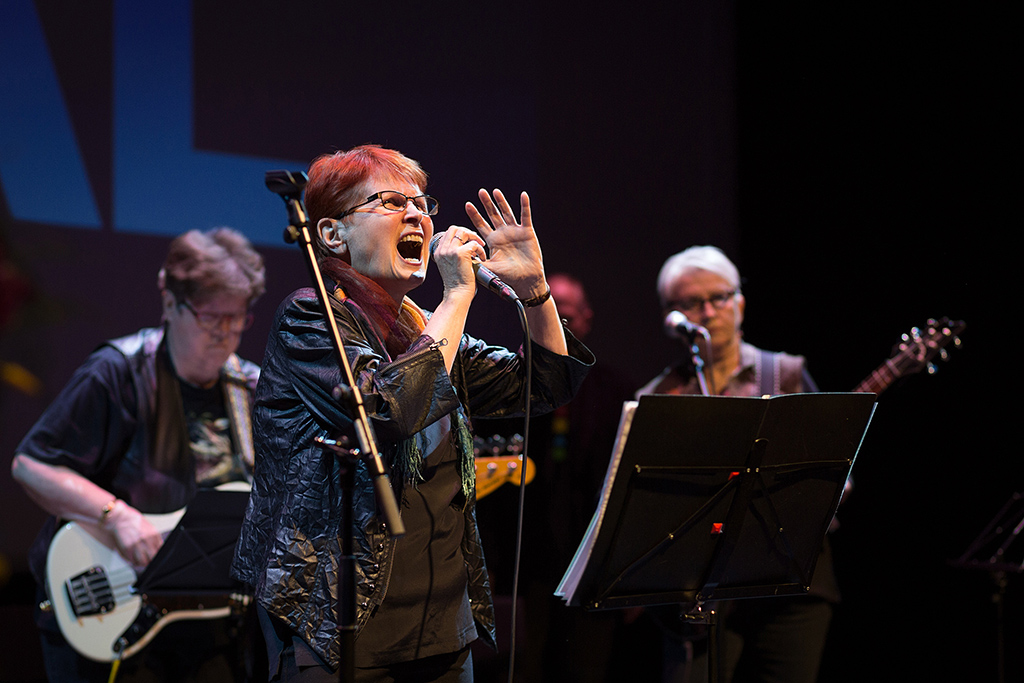Rock bands as transformative learning spaces for older adults
Everyone’s right to learn continues throughout life. Educational and cultural institutions have a responsibility to find new ways to respond to the needs of a rapidly ageing society, according to the Finnish music education researchers.

Finland is one of the super-ageing countries identified by the United Nations (UN), with around 21% of its population aged 65 or over. Other super-ageing countries include for example Japan, Germany and Italy. By 2030, even more countries that meet the definition will join in.
The growing number of older people will require societies not only to develop new services, but also to extend and redesign existing services, such as education.
“We need to provide an increasing variety of leisure and educational opportunities for people beyond working age, as learning should continue throughout life. Educational and cultural institutions have a responsibility to respond to the needs of a rapidly ageing society in increasingly diverse ways,” argue Tuulikki Laes and Laura Kiuru, who have studied rock band activities organized by music educators for senior housing communities in Finland.
Adult rock band is an emerging phenomenon within Finland’s innovative music education field and provides an alternative to traditional leisure activity for older adults. The music education project of the study is pedagogically goal-oriented, focusing on individual learning and emphasising performances as collective learning experiences.
Music connects generations
For their study, Laes and Kiuru interviewed the rock band members and videotaped their performance situations. Most of the participants were beginner music learners, aged 71-81.
In light of their videostimulated interview data, the researchers examine these rock bands as a transformative learning spaces where older adults can reconstruct their identity as music learners and societal actors through musical practices and public performances.
The researchers also made an important notion of how music, in this case rock music, builds bridges between generations.
“At the gigs, people of all ages have come to listen to the older musicians with interest and joy. The participants told how they felt having the opportunity to show that you can do this when you are old,” the researchers say.
“This, too, is a wonderful time of life”
Ageing can naturally affect learning processes for example through visual or auditory decline, creating feelings of frustration when skills do not accumulate as quickly as before. Learning can feel like a struggle, with alternating experiences of failure and success. These should not be ignored, according to the researchers, but through pedagogically sensitive guidance, learners can be supported to overcome obstacles. The meaningfulness of learning and self-determined learner identity is built through struggle.
This study has the potential to develop new solutions to support lifelong learning and empowerment in older age. For example, research has shown that purposeful learning contributes to life management, self-confidence, a sense of purpose in life and social cohesion of ageing individuals.
“When involved in music, I think this stage of life is wonderful too, and of course, being in a band contributes to that. You can always develop when you’re involved in something new,” confirms one rock band participant interviewed for the study.
Award-winning research article praised for its courage
The article ‘Working on identity in an adult band – the struggle of later life learning and the affordances of performing’ was awarded the 2023 Science Article of the Year by the Finnish Adult Education journal in February 2024.
“The scientific article is a bold and encouraging breakthrough in research on active ageing and new learning activities for adults,” said the jury of Adult Education editors.
Aikuiskasvatus is the only Finnish peer-reviewed scientific journal in its field, published by the The Lifelong Learning Foundation and The Finnish Society for Research on Adult Education.
The research reported in the award-winning scientific article is part of Tuulikki Laes’ post-doctoral research project “The Transformative Politics of Music Education in an Ageing Society” (2019–2022), funded by the Research Council of Finland.